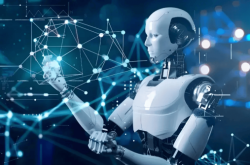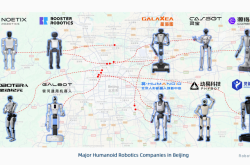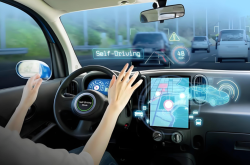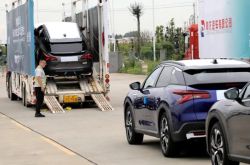Why do we say the story of HarmonyOS has just begun?
![]() 10/14 2024
10/14 2024
![]() 477
477
Written by Qigong
The update of the "top-level design" in a field is often initiated by pioneers who turn ripples into waves.
Take Steve Jobs and Apple as an example. Beyond smartphones, they changed the history of human-computer interaction and revolutionized the communication consciousness of all mankind;
Take Elon Musk and Tesla as another example. Beyond new energy vehicles, their greater significance lies in their subversion of consumers' perceptions regarding transportation and travel concepts;
And take Bill Gates and Microsoft. The Internet is merely a manifestation of their achievements. At a deeper level, they reshaped the way the world works and lives.
Today, Huawei is playing a similar role. The native HarmonyOS NEXT it launched is independent of Android and iOS, possesses full intellectual property rights, and for the first time, gives an operating system a "Chinese soul."
01 What kind of 'infrastructure' does Chinese technology need?
The dream of becoming a powerful nation is increasingly taking tangible form in more and more industries.
When will we have a globally renowned automobile brand? When will we be able to build domestically produced large aircraft and cruise ships? When will we soar into the skies and reach for the stars?
Similarly, regarding operating systems, generations of people continue to ask: When will we be able to use our own "brain center"?
From DOS/Windows in the PC era to Android and Apple's iOS in the mobile internet era, Western giants have always monopolized operating systems, leaving countries without dominance at their mercy.
Recently, a blue screen error in Microsoft's operating system caused a huge commotion across seven continents. A string of error codes led to flight cancellations, train suspensions, hospital closures, disruptions in banking and securities trading, and even temporary broadcast suspensions by some television stations, practically sending Europe and America back to the Stone Age...
Soon, discussions about the "destructive power" of operating systems raged online.
Now, this ingrained situation and the threats it breeds are gradually being broken and dispelled by native HarmonyOS. According to Huawei's announcement, HarmonyOS NEXT began public beta testing on October 8th and is expected to be officially commercialized in the fourth quarter of this year.
From multiple perspectives, native HarmonyOS can be considered a landmark "great power tool" and a new "strong foundation" for the world.
On the one hand, HarmonyOS NEXT achieves full-stack self-development of core technologies such as the operating system kernel, programming languages, and compilers, clearly distinguishing itself from Android and Apple's iOS.
On the other hand, HarmonyOS NEXT reconfigures its architecture, becoming the first operating system in history to bridge hardware and scenarios, supporting diverse interactions and free flows.
For example, based on the Pangu large model, it upgrades Xiaoyi to Xiaoyi AI, making it smarter, more capable, and more thoughtful. It can not only accurately recognize user intentions and execute more complex operations but also provide personalized services such as semantic matching, reminder reminders, and reasoning planning.
This means that compared to previous versions, native HarmonyOS is safer, more controllable, and more "human-like."
'If we're going to do it, we're going to do it right. There's no turning back; the path to victory is the only option we have.'
At Huawei's oath-taking ceremony at the Bantian base on September 25th, Yu Chengdong, Chairman of the Group's Consumer Business Group, shouted these words.
If before 2019, HarmonyOS was just one of Huawei's many backups, then starting in 2019, when extreme pressure from across the ocean became normalized and all imaginable avenues were blocked, its nature and status fundamentally changed – it had to be officially launched early to shoulder the responsibility of keeping Huawei "alive."
To this end, over the past five years, Huawei has invested tens of thousands of R&D engineers and hundreds of billions of dollars and has worked closely with tens of thousands of partners and millions of developers to fully support HarmonyOS.
In other words, it is Huawei's "all-in" approach, an unprecedented consensus in the industry, and relentless efforts day and night that have led to this "Long March" feat in China's technological history and a qualitative leap in innovation levels, resulting in a "new offering" for all mankind: Beyond Android and iOS, there is finally a second option for operating systems.
02 What does the launch of native HarmonyOS mean?
What does the launch of native HarmonyOS represent? Let's discuss this in detail.
Operating systems? We can do it too!
The "Fuxing" high-speed train, tunnel boring machines, the Tianwen-1 Mars probe, the Loongson 3A6000 processor, the "artificial sun"... Many "super projects" and "major achievements" that have emerged in various industries in recent years continue to witness the growth and prosperity of our country and have shattered arrogant Western "filters" time and again, gradually seizing the right to speak.
The "uncharted territory" of operating systems? We can traverse it and make it to shore too!
At Huawei's oath-taking ceremony at the Bantian base on September 25th, Yu Chengdong proudly stated that HarmonyOS accomplished in ten years what Europe and the United States had accumulated over thirty years. This is not only a technological leap but also a manifestation of China's scientific and technological strength.
Domestic self-reliance has never been about venting emotions, boosting courage with slogans, or flaunting capital. It inevitably follows the principle of accumulating small steps over time, nourished by long-term and professionalism, and serves as the foundation for standing firm and strengthening roots in the new era.
HarmonyOS NEXT soared into the sky, showing the world not only that we have achieved a breakthrough from 0 to 1 in a certain field and a strong response to external blockades but also the process of technological transformation from quantitative to qualitative change, setting a new benchmark for the development of "new qualitative productivity."
From the "duopoly" to a "three-way split"
According to the latest data disclosed by research firm Counterpoint Research, HarmonyOS had a market share of 17% in the Chinese market in the first quarter of 2024, a significant increase of 9 percentage points from 8% in the same period in 2023. Meanwhile, Apple's iOS declined from 20% to 16%.
In other words, in the Chinese market, HarmonyOS surpassed Apple's iOS for the first time, becoming the second-largest operating system after Android and surpassing the widely recognized "lifeline" market share of 16% for operating systems.
Since then, the duopoly of Android and Apple's iOS no longer exists. HarmonyOS's entry will inject continuous vitality into the prosperity of operating systems and drive the competition in this niche market from a "two-sided confrontation" to a "three-way struggle."
Node Finance believes that as HarmonyOS NEXT initiates public beta testing and accelerates its commercialization process, its widespread adoption in Huawei's smartphones, tablets, computers, watches, and other terminal products, as well as the increasing number of third-party vendors joining in, is expected to further expand HarmonyOS's market share.
By the end of June, the number of devices equipped with HarmonyOS had exceeded 900 million, up from 700 million in August of the previous year.
A groundbreaking underlying framework
It should be noted that native HarmonyOS is not a simple replacement for its peers but possesses unique attributes and connotations, striving to create a powerful, fully open, more convenient, and more "wow" experience for users.
In fact, only in this way can HarmonyOS compete with Android and Apple's iOS.
As mentioned earlier, HarmonyOS NEXT reconfigures its architecture, becoming the first operating system in history to bridge hardware and scenarios, supporting diverse interactions and free flows.
HarmonyOS was born with the logic of the Internet of Things in mind. From small devices like speakers and bracelets to large appliances, cars, humanoid robots, AR glasses, drones, and more, they can all be connected through a single operating system. Amid an unprecedented wave of AI, it will further fulfill the promise of diverse and intelligent communication and interaction between things and people, evolving from the Internet of Things to the Intelligent Internet of Things.
In this regard, it is distinctly different from the inherently exclusive Android and Apple's iOS. In layman's terms, HarmonyOS has upheld the values of mutual benefit and win-win cooperation and going far together since its inception.
From this perspective, HarmonyOS NEXT innovatively establishes a prototype of an underlying framework with a brand-new mindset and design philosophy, building cutting-edge infrastructure for various industries and bringing more upward and innovative possibilities to the "capillaries" of the economy.
To a certain extent, the launch of native HarmonyOS fills the "shortcomings" of operating systems, strengthens the "backbone" of the country, and sounds the "rallying call" for ecological co-creation and sharing across all industries.
03 Why does HarmonyOS place such emphasis on ecological construction?
'Creating an operating system is not difficult; the challenge lies in ecological construction.'
Why is that? An operating system can often be created by a single company, team, or even individual, but ecological construction has never been a "solo act." It is a large-scale "team-building" activity that ideally involves everyone contributing.
Huawei deeply understands this.
'We can't create HarmonyOS on our own. Only by relying on partners from all walks of life can we achieve the true prosperity of the HarmonyOS ecosystem. Many hands make light work. I would like to express my heartfelt gratitude to all partners from all sectors of society who have worked tirelessly with us over the past year to jointly build the HarmonyOS ecosystem. HarmonyOS is not just created; it is also used. In the coming months, we will work together to sprint towards the official commercialization of native HarmonyOS,' said Yu Chengdong, hitting the nail on the head.
Therefore, Huawei is calling on all sectors of society, including governments, enterprises, and institutions, to contribute to the ecological construction of HarmonyOS and make it a truly flesh-and-blood operating system.
At the same time, Huawei leads by example, consistently investing over RMB 6 billion annually to encourage and support innovation among HarmonyOS developers and jointly cultivate relevant talent with industries and universities, adding 100,000 new HarmonyOS developers each month.
According to Node Finance, over 4,300 enterprises have participated in HarmonyOS Ecological Schools, 305 universities have offered HarmonyOS courses, and the total number of registered developers in the Huawei Developer Alliance exceeds 6.75 million.
Recently, Huawei announced its latest incentive plan for native HarmonyOS app developers. After enrolling in the plan, developers who meet the incentive conditions can receive up to RMB 100,000 in cash rewards and corresponding traffic support.
A large number of leading app developers and owners have already joined or are on their way to contribute to the construction of the HarmonyOS ecosystem.
Taking office software WPS as an example, since last year, it has deployed significant resources to adapt to HarmonyOS NEXT. After countless days and nights of collaboration, the two parties jointly improved and optimized multiple engineering infrastructures, seamlessly migrated 40 million lines of code, effectively resolved issues such as cross-platform interface compatibility, differential processing, and long debugging processes faced by WPS, and provided valuable reference experiences for latercomers.
Meituan was among the first internet giants to "try out" HarmonyOS. Early this year, it launched its first HarmonyOS version of the Meituan app, covering food, hotels, pharmaceuticals, takeaways, flash sales, preferred selections, grocery shopping, and more.
In addition, products from giants such as Tencent, JD.com, Ali Group, ByteDance, and Baidu, including QQ Music, Sogou Input Method, Taobao, Alipay, Ele.me, Toutiao, Douyin, Feishu, and dozens of other "national-level" apps, have also successfully integrated with native HarmonyOS, playing a pivotal role in building the new ecosystem.
In the view of Node Finance, what attracts these giants, besides their strong sense of responsibility, is the enormous dividends released by new technologies at their nascent stages.
Take Alipay and DingTalk as examples. Benefiting from the AI capabilities of the HarmonyOS NEXT intent framework, services are easier to understand and access, enabling precise and efficient service distribution and scheduling for users. Both have successfully secured "benefits."
The former actively recommends one-stop service package options based on users' real-time locations in Xiaoyi's scenario suggestion cards, while the latter, in office scenarios, can accurately understand users' intentions through the intent framework and directly find contacts in DingTalk and initiate DingTalk meetings with just one command to Xiaoyi.
Currently, over 10,000 apps and services have been listed on the HarmonyOS NEXT app market, covering 18 vertical domains and meeting 99.9% of consumers' usage time, marking the continuous iteration and acceleration of HarmonyOS's ecological maturity.
Final Thoughts
Looking back on this tumultuous story, this quote from British science writer Matt Ridley in "The Origins of Innovation" may serve as an apt commentary:
'Computers were not born in a single day, nor did apes evolve into humans overnight. Technological progress and human happiness do not stem from a single moment of mutation but from countless small steps forward day and night.'"
For Huawei and HarmonyOS, one additional point needs to be emphasized in this commentary: Unity is strength.
We believe that with the commencement of commercialization in the fourth quarter, the blossoms of HarmonyOS will flourish even more, painting the countryside with vibrant spring colors.
*The lead image is generated by AI







